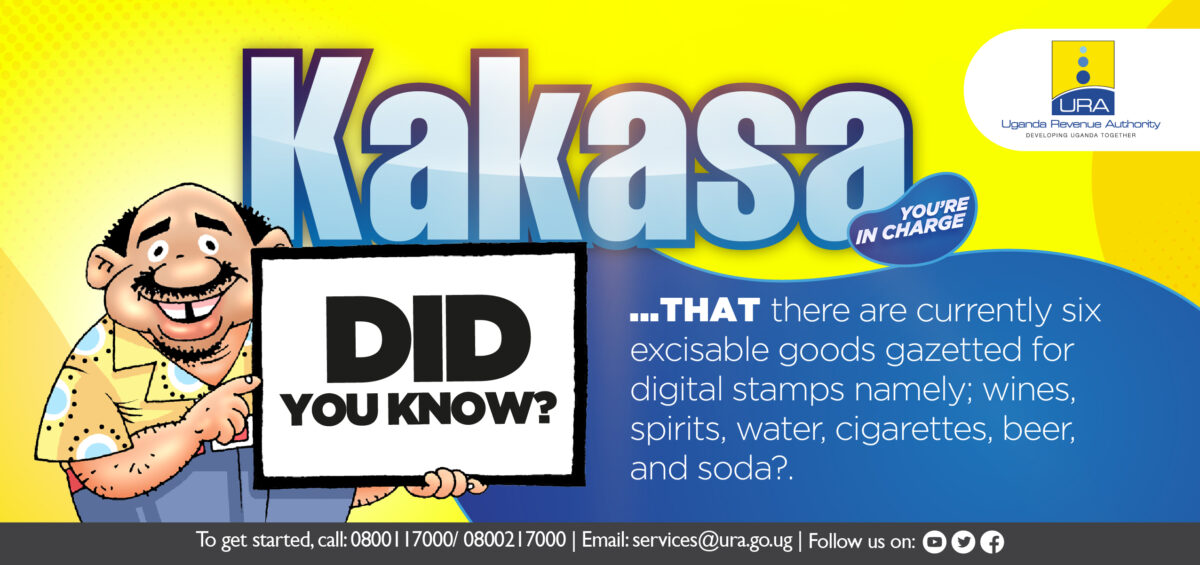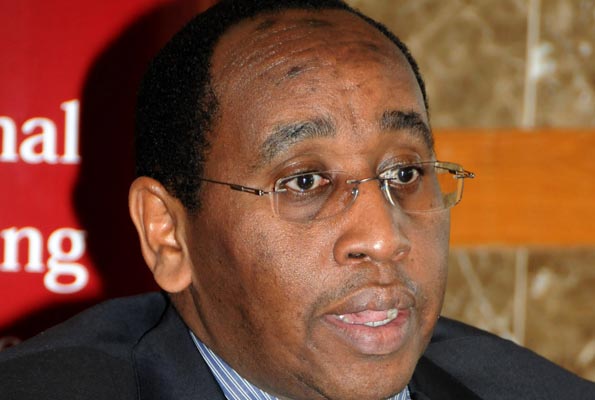Bank of Uganda’s Executive Director for Research, Dr Adam Mugume
The government remains adamant about the debt burden on the country, despite now having exceeded the dreaded level of 50 % of the value of the economy (GDP), according to the latest records.
The countries in East Africa agreed with the International Monetary Fund (IMF) three years ago to limit their levels of indebtedness to below 50% of GDP, recognizing that beyond that, it would strain the countries to the extent of failure to pay back.
In that period, Uganda’s debt rose from 37% in 2017 to 41% of GDP in 2018/2019. In that same year, the cumulative debt burdens for Kenya and Rwanda exceeded that level and Uganda and Tanzania were continuously hailed for what was considered ‘prudent’ borrowing policies, though the IMF called for caution.
“While Uganda’s debt level remains at low risk of debt distress, Directors caution that debt metrics had weakened, some investment projects may not generate the envisaged return, and interest payments are rising,” said an IMF statement.
The Directors thus called on the authorities to keep debt below 50 percent of GDP over the medium term to safeguard the favourable debt sustainability rating.
Following the outbreak of covid 19, parliament approved loans totalling 18.7 Trillion Shillings ($5.1 billion). This all came amidst objections from political leaders and sections of the government, particularly the Bank of Uganda.
Bank of Uganda’s Executive Director for Research, Dr Adam Mugume says if the 2021/2022 budget proposals are passed, the total outstanding debt of the country will rise to 86.9 Trillion Shillings, which will be 52% of the GDP.

Dr Mugume says that what worries people are the bilateral loans mainly from China, but that these amount to only $3 billion. He says a bigger chunk of this is borrowed from external sources, with 69% coming from multilateral development partners, like the IMF and the World Bank, with long repayment period and low-interest rates. He says that these are therefore easy to pay. //Cue in: “These are loans…
Dr Mugume gave examples of large economies like Japan whose burden in more than 200%, while others like Italy, the U.S, and South Africa have rationed above 100%.
He however says that debt repayment and payment of interest is from the tax revenues.
With the government planning to spend more than 6 Trillion Shillings next financial year to pay back loans and interest, there is a need for increased mobilization of tax revenue because, otherwise, other services will be affected.
Mugume adds that what Ugandans should be concerned with is whether the loans are being applied to productive sectors like infrastructure and others that add to the country’s production capacity, which leads to debt sustainability.
Dr Mugume drew caution from Jason Rosario Braganza, the Executive Director of AFRODAD (the African Forum and Network on Debt and Development), who said the government should take caution how it spends money, especially where budgets are not strictly followed, as well as on cases of corruption.
Uganda Debt Network Executive Director Julius Kapwepwe reasoned that the government figures do not give the real picture of its indebtedness. He cites items, like government guaranteeing loans, debts owed to local governments or even accrued payments like land compensations and awards by the Uganda Human Rights Commission, are not taken into account.
However, he adds that even if the government figures were correct, there must be a plan to reduce the burden.
On the contrary, even as the country pays debts, it is bent on continuing to borrow.
Kapwepwe calls for a total cancellation of debts owed by Uganda and other poor African countries because the initiatives like the Debt Service Suspension Initiative offered by the G20, a group of rich lending nations, will not have much impact.
Speaking at a dialogue between the government and the civil society on Uganda’s rising indebtedness, NGOs including the UDN, SEATINI and AFRODAD urged Uganda and other African countries to take up the debt relief offer supported by the IMF and the G20.
By end of January, only three African countries had applied for this, while others, including Uganda, are reluctant due to the expected consequences on their creditworthiness.
It is feared that by going for debt relief, a country loses its sovereign rating and it will be hard for it to get credit in future.
The NGOs told the African countries to join efforts and tell off the credit rating companies, which advise lenders on which county to lend to and how. They however advised the government to review its spending habits, especially on public administration among others.
-URN





